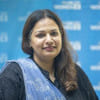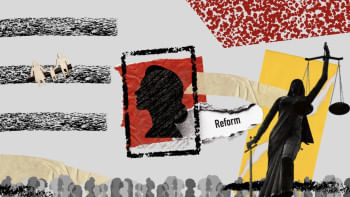No more silence, speak up, act for all women and girls

In 1995, as many as 189 governments, including Bangladesh, unanimously adopted the Beijing Declaration and Platform for Action as a groundbreaking and far-reaching framework for the achievement of gender equality and the realisation of the human rights of women and girls as an inalienable, integral, and indivisible part of all human rights and fundamental freedoms. This year marks a pivotal milestone in the pursuit of gender equality and the rights and empowerment of ALL women and girls: 30 years of the Beijing Declaration and Platform for Action, 25 years of UN Security Council Resolution 1325, and the five-year countdown to the Sustainable Development Goals (SDGs) deadline.
In March this year, member states including Bangladesh adopted a political declaration by consensus to respect, protect, and champion the rights, equality, and empowerment of women and girls. The political declaration reaffirms the commitments of the Beijing Declaration and Platform for Action, originally adopted in 1995 at the Fourth World Conference on Women, stressing the need to uphold all human rights and fundamental freedoms for every woman and girl, without exception. The declaration expresses concern that progress has been slow and uneven, and therefore recommends accelerating implementation across all 12 areas of concern. It underscores the importance of eradicating poverty in all its forms, including through ensuring women's and girls' right to education, particularly in STEM fields, and by increasing public investments in care systems. Recognising the vast potential of technology, it highlights the necessity of closing the gender digital divide and calls for renewed investment in gender statistics and data to drive informed policymaking.
The declaration recommits member states to eliminating all forms of violence against women and girls, including emerging forms such as digital violence, online harassment, and cyberbullying. Further, it acknowledges that achieving progress in these areas requires substantial resources and financing. It calls for strengthened national systems, women's machineries, and international mechanisms, including a revitalised Commission on the Status of Women (CSW), to accelerate gender equality efforts globally. It reinforces commitments to women, peace, and security, emphasising the need to integrate women's voices and leadership into all stages of conflict prevention, peace-building, and conflict resolution.
Globally as well as in Bangladesh, we have seen change happen: stronger national normative frameworks; more girls in schools; reduction in maternal mortality; increasing number of women in the labour market; more women breaking the glass ceiling across sectors; and dynamic and vibrant women's movements. While there has been significant progress, we are also witnessing calculated pushbacks. As UN Secretary-General António Guterres noted in his 2025 International Women's Day 2025 message, "Centuries of discrimination are being exacerbated by new threats. Digital tools, while brimming with promise, are also often silencing women's voices, amplifying bias, and fuelling harassment. Women's bodies have become political battlegrounds. And online violence is escalating into real-life violence. Instead of mainstreaming equal rights, we are witnessing the mainstreaming of chauvinism and misogyny. We cannot stand by as progress is reversed."
In Bangladesh, too, we see this trend. On the one hand, we saw women and girls at the frontlines of the anti-discrimination movement—visible, vocal, bold, and leading from the front. On the other hand, we are seeing a regressive trend towards controlling women's voice, choice, and agency: online harassment and incessant trolling to curb freedom of expression of women and girls; use of derogatory language and hate speech targeting women's rights advocates; policing of women's behaviour and attire in public spaces; restrictions on women's and girls' mobility; and disruption of girls' football matches and public rallies targeting women using appalling and abusive language. The one constant has been violence and harassment. Women and girls have endured it before, during and after the anti-discrimination movement. What is disturbing is how violence against women and girls continues to be normalised, including on social media, and at times venerated.
The vision of a new Bangladesh must be steadfast in its commitment to equality, non-discrimination and freedom from violence and abuse. When women and girls are heard and not silenced; when they are seen and not invisibilised; when they have equal rights, leadership opportunities and a seat at the decision-making table—everyone prospers.
Women's rights are human rights. We stand firm in our commitment to gender equality, women's rights, and empowerment for all women and girls and will continue to work closely with the government and civil society partners. Investing in women and girls is always the right thing and smart thing to do.
No more bystanders. No more silence. The time to speak up and push forward to accelerate the rights of women and girls is now.
Gitanjali Singh is representative of UN Women in Bangladesh.
Masaki Watabe is representative ad interim for the United Nations Population Fund (UNFPA) in Bangladesh.
Views expressed in this article are the author's own.
Follow The Daily Star Opinion on Facebook for the latest opinions, commentaries and analyses by experts and professionals. To contribute your article or letter to The Daily Star Opinion, see our guidelines for submission.


 For all latest news, follow The Daily Star's Google News channel.
For all latest news, follow The Daily Star's Google News channel. 










Comments